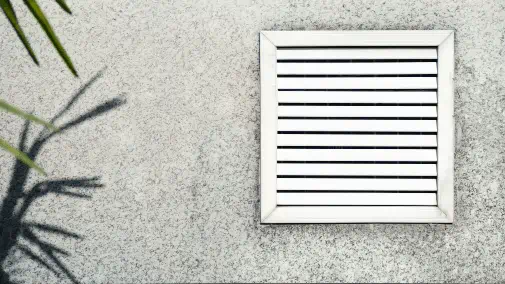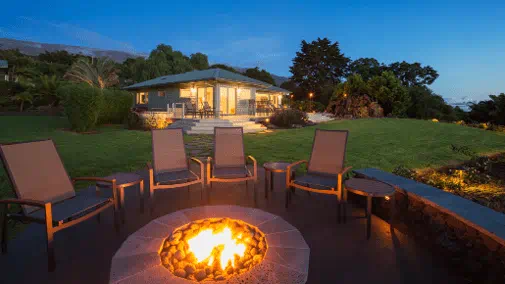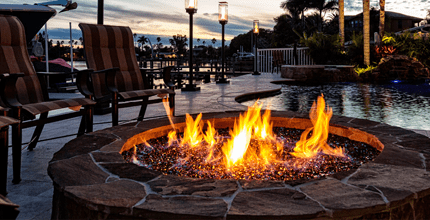Natural gas can be used in a variety of ways to make your life easier. Indoors, natural gas dryers are a better choice for your wallet and the environment. Outdoors, patio heaters, gas lamps, campfires and pool heaters are simple choices that can maximize the use of your property.
Ways to save
There are lots of ways to save on your gas bill. Begin by establishing good energy habits with these tips to use natural gas efficiently in your home.

In the laundry room
- Natural gas dryers are better for your wallet and the environment, compared to electric units.
- Dry only full loads of laundry to maximize the energy use.
- Clean out lint filters after every load and ducts annually so your clothes dry faster and use less energy.

On the patio
- Patio heaters are easy to use and cost efficient – 81 percent of their energy goes toward heat to keep you warm.
- Natural gas lamps are a more efficient alternative to electric lights — without the cost and hassle of changing burnt-out bulbs.

In the garage
- Insulate your garage to minimize heat loss.

In the pool
- Natural gas pool heaters extend your pool season well into fall - and are significantly more efficient than electric heaters.
- Use a solar cover when you’re not using your pool to retain heat.
- Make the most of the sun’s energy by trimming back overhanging trees. Your pool will absorb 75 percent to 85 percent of the sun’s energy.
Tips for other property improvements with natural gas
Incorporating other uses for natural gas in your home or on your property can lead to cost savings and increases to your property value. Before you commit to natural gas home improvements, do your research to ensure you find the right product for your needs.

Pool heaters
- Know your pool’s volume and surface area.
- Know your preferred water temperature.
- Research the average air temperature during the day and at night during your pool season.

Campfires
- Check with your municipality to find out if natural gas campfires are allowed.
- Think carefully about where you’d like to put your natural gas campfire. This will help you choose the right one.
- If you want the ability to cook over your natural gas campfire, think about buying one with an optional cooking grill.
Safety tips
Safety is our top priority, and natural gas is one of the safest energy sources available. Use your natural gas appliances safely by following our tips.
If you’re buying new or used natural gas appliances, keep in mind they must meet the certification standards of the Canadian Standards Association (CSA). Look for the CSA logo on an appliance's rating plate or in its instruction manual. Exceptions can be made for equipment that is custom made, built on site or produced in limited numbers.
Dryer safety
- Twice a year, check the outside opening of the exhaust vent, where lint can collect and cause a fire. This is different from cleaning the interior lint trap.

Pool heater safety
- Have your heater unit checked regularly by a HVAC contractor.
- If you have an indoor pool heater with copper-finned tube heat exchangers, it must be inspected and cleaned by a certified gas technician each year before you use it.

Campfire safety
- Check with your municipality to find out if natural gas campfires are allowed.
- Have your natural gas campfire installed by a registered HVAC contractor.
- Read your owner’s manual for proper maintenance information.

Need help?
Enbridge Gas does not sell, rent, install or repair natural gas products like furnaces, water heaters, dryers and fireplaces. We also do not install natural gas lines after the meter (like for a barbecue or pool heater). However, you can consult your rental provider or a registered heating, ventilation and air conditioning (HVAC) contractor for these services.










